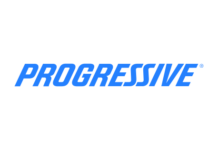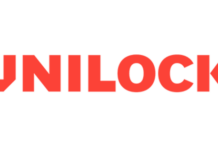
I’m a multitasker. I always feel like I get more done when I can simultaneously check two items off of my to-do list, whether it’s checking email while waiting for a large document to print, editing a story while warming up my lunch or listening to an educational podcast while I’m making a long drive. I feel empowered. I feel productive.
So I was surprised to learn recently that people who multitask decrease their productivity by 20 to 40 percent, according to the International Association of Business Organizing (IABO). They say increased efficiency isn’t about working harder (e.g. doing two things at once), but more about working smarter (having the focus to finish one task before moving on to another, and doing it well).
Eliminating waste and enhancing efficiency is how many small businesses have been able to stretch every dollar and boost their bottom lines in this challenging economy. Knowing there were moments of wasted time that could have been billable is never a good feeling. Wasted time typically means lost dollars.
In addition to boosting productivity in the field, a landscape business owner or manager can also boost productivity in the office.
Consider these other staggering statistics IABO recently reported:
- The typical U.S. worker is interrupted by communications technology every 10 minutes.
- The average office has 19 copies of every document.
- Americans spend one year of their lives looking for lost and misplaced items at home and at the office.
- According to David Allen, author of “Getting Things Done: The Art of Stress-Free Productivity,” small business owners may want to consider these tips to streamline their processes and make their businesses even more efficient.
- Ban mental clutter. Many entrepreneurs have busy minds – dozens of ideas or to-do items filling their heads. So while they are working on an important customer issue, they are also thinking about a marketing initiative or a malfunctioning office printer. Allen says being weighed down with these uncompleted tasks without writing them down creates mental clutter, which makes it harder to be creative or effective at work. He recommends writing ideas, to-do items or worries on paper or in a computer document. Then, not only are they out of the owner’s head, they are also in a format that he or she can begin to organize and prioritize after finishing current, more pressing tasks.
- Ban email clutter. Allen is a huge proponent of processing your email inbox until it’s empty. Immediately act on messages that take two minutes or less to respond, and then file or delete them. Emails requiring more time should be dealt with in one of three ways:
- Put the item on a calendar to be dealt with by a specific date.
- Delegate the item to a co-worker or employee.
- Put the item on a “next actions” list you review regularly.
- Think action-oriented. Listing to-do items on a daily or weekly list that are too general can also weigh down a business owner’s mind and spirit.
“We’re giving ourselves so much to do, and we’re taking on so much of what we expect others are expecting of us that it would be virtually impossible to do even a portion of what’s on our plates,” Allen points out. “Unfortunately, the resulting ambiguity of just halfway assuming responsibilities and commitments with ourselves and others, or just halfway clarifying and understanding what they mean and what needs to be done about them won’t cut the pressure in half – it doubles it.”
Allen recommends owners be more specific when creating their lists, focusing on action-oriented items. Writing something like “Find new clients” is too broad and requires the person to stop and think about how to tackle the job. But if you list specifics on your list, then you are breaking the larger goal into proactive tasks and are more likely to complete the smaller steps necessary to reach the bigger goal. For instance, “Obtain the names of two building owners who mentioned they need a new supplier” is a more specific way of accomplishing the broader “Find new clients.”
“You can only do one thing at a time,” Allen says. Business owners who don’t even take small steps to clean up these little areas of their businesses could be missing opportunities and weighing themselves down with stress and worry. “Much of what we must do to gain comfort and control is clarifying what all that work is objectively, in a format that provides an easy overview,” Allen says. “We must continually renegotiate those commitments with ourselves and with others.
“And that’s impossible to do,” Allen continues, “unless they’re captured, clarified and organized in some systematic way outside our psyche.”
Nicole Wisniewski is a 15-year green industry veteran and award-winning journalism and marketing professional. She is currently a senior project manager in The Davey Tree Expert Co.’s marketing/corporate communications department. Visit her blog at www.mybiggreenpen.com or reach her at nwisniewski@neo.rr.com.




























![[VIDEO] Dickies®: Discover Workwear That’s Anything But Uniform](https://turfmagazine.kinsta.cloud/wp-content/uploads/2023/06/1647663814-4b1a2a7742790a9b1e97a3b963477850192e1d6a9dfba9b07214a77bae25d6e3-d-324x160.jpg)


